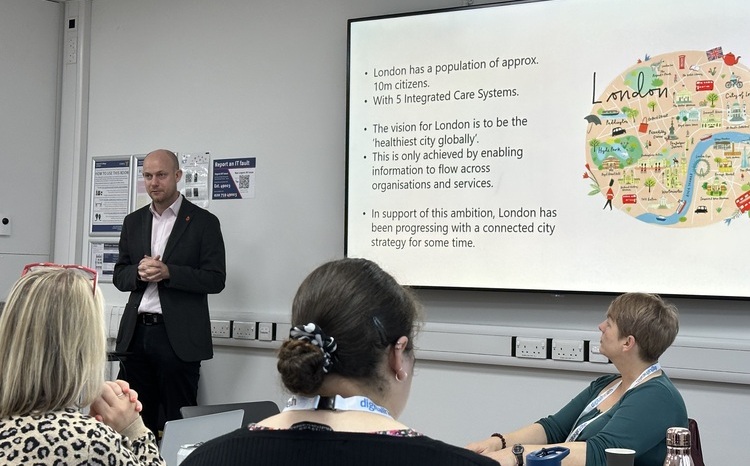Break down information silos – Poulter
- 9 September 2014

Breaking down information silos between different health providers is essential if the government is to successfully join up health and social care, health minister Dr Dan Poulter has said.
At a conference in London yesterday, Dr Poulter spoke about the goals of the Care Act 2014 and a move towards greater integration between health and social care.
The government has set a goal of having integrated digital care records for health and social care services by 2018, and Poulter told EHI that improved integration with IT systems will help to improve the quality of the care that patients receive by ensuring greater communication between health and social care providers.
“The key to delivering joined-up care is breaking down some of the historical silos that have existed in social care and different parts of the NHS,” he said.
“If we can get systems that allow the organisations to talk between each other, as well as protecting patient information, that will help a great deal.”
He added that improved information-sharing will allow organisations to develop more detailed care plans for patients with long-term conditions and ensure they can be looked after if their situation changes.
“For patients with dementia, they have long-term care needs and once you have a more joined-up system, you can work out what their care needs will be for the NHS and make better plans.”
He said improved integration will also help to “drive financial efficiencies” and help the NHS to become more financially sustainable as it tries to meet the needs of an aging population.
“Clearly if you have better IT, you can save more, because you don’t have paper going around the system and delaying good things from happening, and that can help different parts of the system to save money and free up cash.”
Poulter, an obstetrician, said his personal experience has shown him the value of paperless records and the problems that paper-based notes can cause.
“Everyone has a handheld set of notes, and if someone forgets their notes, they can miss an important event that may affect a patient’s future care.”
He said the 14 ‘integrated care pioneer sites’ chosen by the Department of Health are “working very well” and helping to demonstrate the merits of shared care records and other uses of technology.
“It’s about using [the pioneers] to work out what’s best practice on the ground. This is no longer a ‘nice to do’ – joining up care is an essential part of delivering better care for patients.”
Speaking about the National Information Board’s IT strategy, which is due to be released later this year, Poulter said it is important to ensure that patients understand how their information is being used and how it can benefit them.
“It’s important that there’s engagement with patient groups, particularly patient confidentiality because that’s crucial to their data being used in ways, so I think it’s right that we take time and focus on that.”




